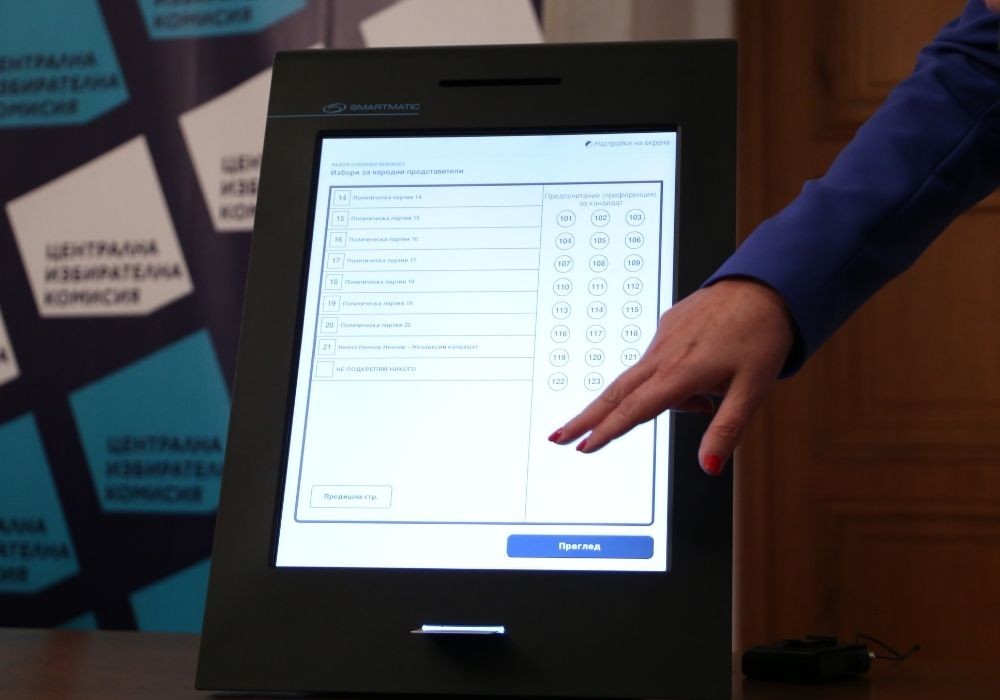Bulgarians are once again in front of the ballot boxes. For the third time this year Bulgarians elect representation in the National Assembly. The importance of the elections is big as today Bulgaria also decides who its head of state in the next 5 years would be. However, the election campaign that preceded today's vote failed to clearly outline the post-election guidelines that the candidates for state power would follow. There was a lack of debate on important issues for Bulgarian society - health care, judicial reform, the economy and low incomes. Many analysts described it as a campaign of angry monologues, in which the candidates did not want to talk to each other and some of the main contenders did not even join the debate. Could this prevent us from making an informed choice today?
"It is a fact that we are used to linking democracy to debates, opposing views and discussing important topics,” social psychologist Assoc. Prof. Nikolay Dimitrov, a lecturer at Sofia University St. Kliment Ohridski and NBU says. “On the other hand, even in the most developed democracies, political fanaticism is very similar to football. And the number of matches that a team has against the other team and the results do not matter much to the fans. In that sense, there is not much use of the election debates, because they cannot lead to great shifts in the political situation."

We can say that today Bulgarians go to the polls with two motives. One is emotional and is linked to the support for a certain political force over the years and the other one is the principle of the protest vote - in search of a new hero who would "fix" the situation in the country. However, we must say that these elections are special because of the accumulation of various circumstances around them. "The most serious thing at the moment is the pandemic situation in Bulgaria, which would certainly stop many people from exercising their right to vote,” Assoc. Prof. Dimitrov says. He forecasts that we would not see records in voter turnout. At the same time, we must make a clear distinction between a parliamentary vote and a presidential vote, in terms of voters’ interest:
"They are very different in terms of philosophy and attracting voters. On the one hand, it is said that there could be a little more activity today, precisely because the early parliamentary elections coincide with the presidential elections. Traditionally, presidential elections are a bit more popular among voters for a number of reasons, one of which is that they are largely the only majority elections at which Bulgarians can choose a single person."
Today, 23 pairs are taking part in the presidential race and a strong female presence is seen. There are four women candidates for head of state and 14 for the position of vice president. How do Bulgarians see the ideal candidate for president?

"To my regret, Bulgarian society continues to be quite traditional in this regard," the social psychologist says. “The first condition that a presidential candidate must meet is being a man. The other indisputable thing is being charismatic. The candidate must also be active and have a position, no matter how he defends it. In this sense, we see that many of the candidates currently fit this frame."
What will be the impact of votes coming from outside the country?
"Bulgarians abroad are a very interesting phenomenon that traditionally overturns many plans for entering the parliament, especially in recent years," Assoc. Prof. Nikolay Dimitrov says. "We have seen that during the last few elections significant number of votes from abroad come for certain parties, while other parties receive very few votes from abroad in comparison to those from the country.”
Author: Elena Karkalanova
English: Alexander Markov
Photos: BNR, private library, BGNESBringing youthful energy, colour and cheer to the Bulgarian National Radio studio, students from the Bulgarian Sunday School Dr Petar Beron arrived from Larnaca. The group from Cyprus — 16 pupils aged between 14 and 19 — is currently on a week-long..
At the outset of the war between Russia and Ukraine, the Bessarabian Bulgarians across all lands marked their national day with prayers for peace. Nearly four years on, burdened with even greater sorrow, they commemorate that special day scattered..
Switzerland is one of the smaller Central European countries on the Old Continent. It consists of twenty-six cantons with a population of about 9 million people, according to the latest Eurostat data from 2024. 41% of those residing in the country are..
The so-called Seal of Biliteracy was created in 2011 in the US state of California with the idea that in the conditions of a globalized..
On 27 October, the first meeting of Action CA-24150 “Values in Turbulent Times: Navigating Social Change and Challenges (VISTA)” took place in Brussels...
In the summer of 2014, photographer Philippe Bazin and philosopher Christiane Vollaire traveled around Bulgaria, investigating a series..

+359 2 9336 661
